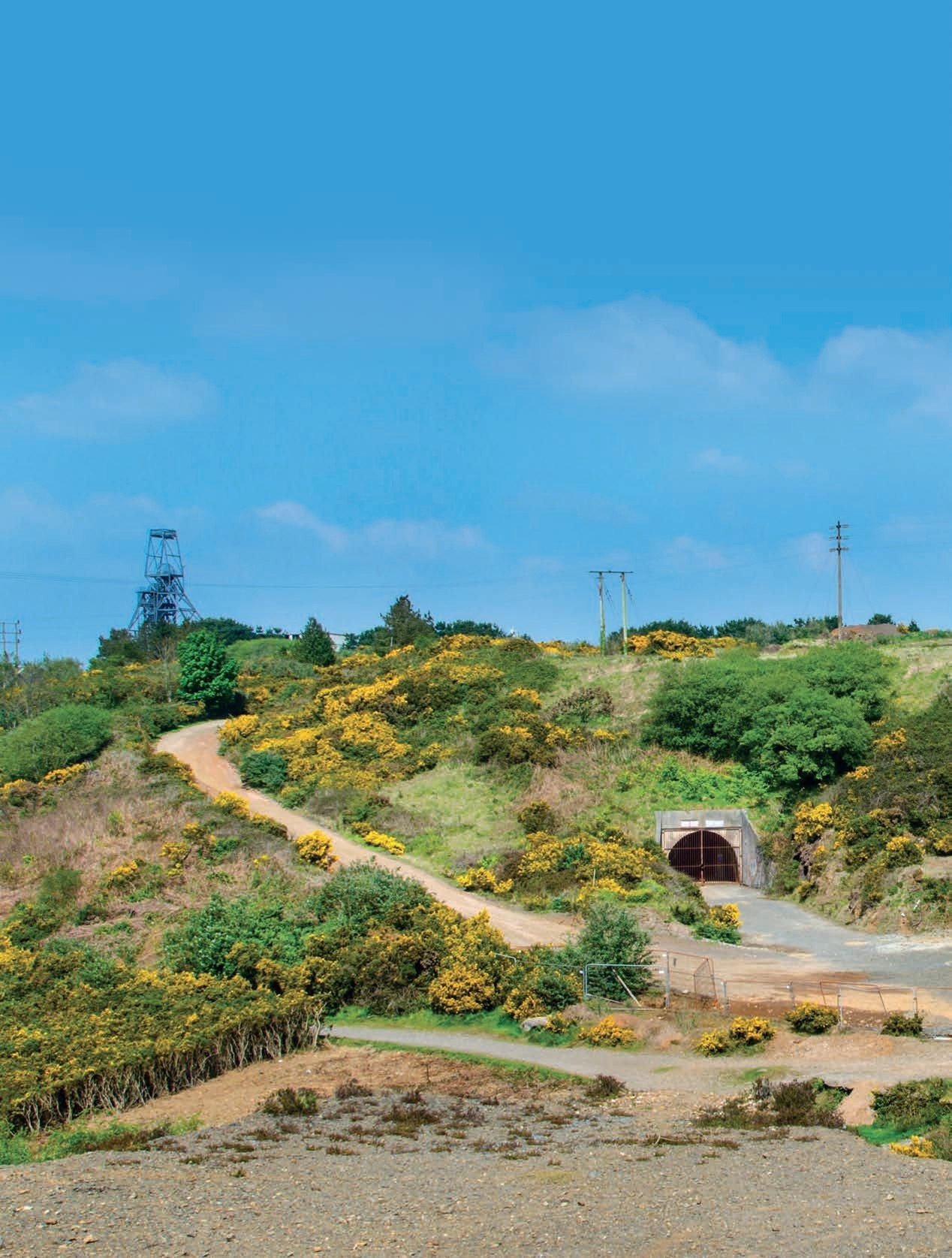
The entrance to South Crofty, a 400-year-old copper and tin mine in west Cornwall, is shut off by two high red gates. Since the mine closed in 1998, a decade or so after that industry began grinding to a halt in the region, few people have ventured inside. But on a recent winter’s morning, Aaron Wilkins, a geologist who believes the mine has a future, drove Jay Elwes through the gates…
© PAUL MARTIN / ALAMY STOCK PHOTO
Down a long, narrow slope—no wider than a London Underground tunnel—we headed deeper into the Earth. The car’s headlamps lit the way until we could drive no further and had to continue on foot, emergency respirators attached to our belts. Several hundred metres below ground, the neat tunnel of the mine’s entrance gave way to bare stone, and a craggy, low ceiling. The floor of the mine was red—a sign of the iron drawn from the rock by the water, which ran down the walls, collecting on the ground in large pools. We were standing at the site of the Great Cross Course, an enormous geological fault line that cuts north-south across Cornwall and out beneath the Celtic Sea.
“Most rock is fairly impermeable,” Wilkins explained. “But where there’s a discontinuity, or a structure like a joint or a fault, you would expect to find mineralising fluids. And at depth, some of these structures will contain elevated temperatures which will increase the mineral content.” The iron turning the water red is not, however, the reason why there is now commercial interest in South Crofty—and neither are there new finds of copper or tin, the metals for which the mine was dug several centuries ago. The geological faults, Wilkins said, are where “you would expect to find elevated concentrations of lithium.”